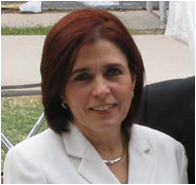Wednesday, January 30, 2013
Dialects of English Language- What do you think of the following? Comment
What is a dialect?
Speakers of any given language sometimes get offended when their particular language style is called a dialect. To avoid any confusion, I would therefore like to explain what I mean by the term "dialect."
According to the American Heritage Dictionary of the English Language, a dialect is
A regional or social variety of a language distinguished by pronunciation, grammar, or vocabulary, especially a variety differing from the standard literary language or speech pattern of the culture in which it exists.
The problem with this definition is that it implies that there is some sort of "standard" language from which all of the various dialects of that language differ. In English, however, I do not think this is true. I think that the English language is far too widespread and varies too much for anyone to say that the English spoken in ____ is "standard" and everything else is a "dialect." Even if it were narrowed down to a single country, there is still a great deal of variation within that country, and who is to say which region/city/state/province speaks proper English?
My definition of a dialect is simply this: "A variation of a given language spoken in a particular place or by a particular group of people." Therefore, when I use the term dialect, I am not making any sort of judgment about the quality or "correctness" of that variety of English. I believe that American, British, Canadian, and Australian English are all dialects of the English language, and that none of them is any better or more proper than any other.
In writing about English dialects on this site, my goal is to make English speakers - both native and non-native - aware of the differences in English as it is spoken around the world. I don't think that the English I speak is "right" English, nor do I think that British and Australian are "wrong" English. I am fascinated by language in all its forms, and this site provides me with the opportunity to discover more about the language I speak and how it varies from the English spoken by others.
So whatever form of English you speak, please do not take offense at my use of the term "dialect" in referring to different varieties of English. They are all interesting and valuable, and I respect every single one.
Laura K. Lawless
